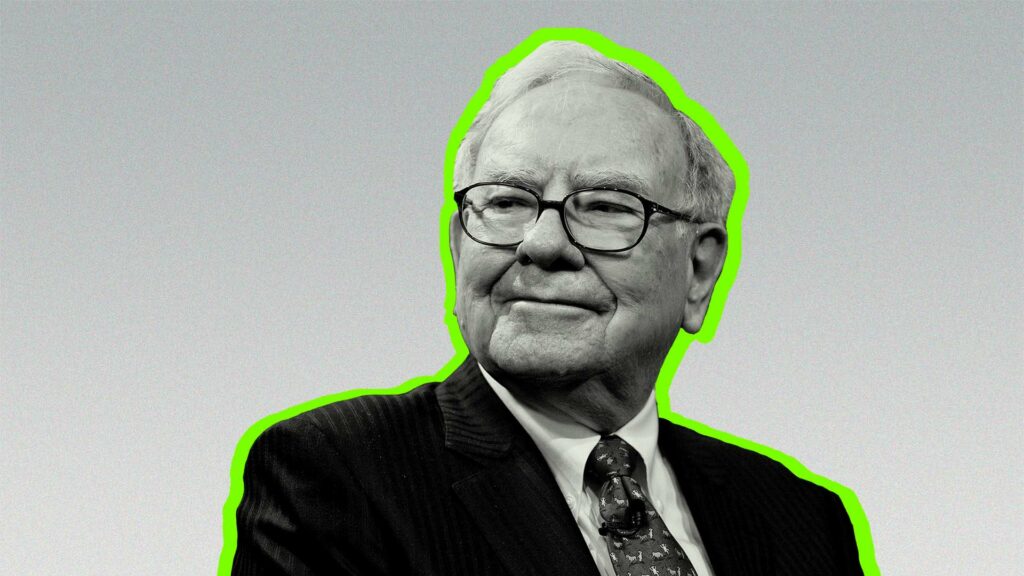7 Best Pieces of Investment Wisdom From Warren Buffett
Understanding Warren Buffett’s investment wisdom is crucial for developing global investment strategies that can secure your financial future.
If you are looking to invest as an expat or high-net-worth individual, which is what I specialize in, you can email me (advice@adamfayed.com) or use WhatsApp (+44-7393-450-837).
Introduction
If you are a beginner in investment, you might want to know some investment wisdom from Warren Buffett.
One of the greatest investors of all time, Warren Buffett has built a multi-billion dollar fortune by making investments through his company Berkshire Hathaway. Buffett is a wonderful wit as well as a great investor, and he loves to impart his common sense knowledge to other investors.
He offers guidance on a wide range of subjects, including investment and life in general. But let’s focus on Buffett’s money-making ideas for the time being. What’s striking is that Buffett’s advice sounds so obvious and doable, yet it has the potential to generate enormous wealth.
7 Best Pieces Of Investment Wisdom From Warren Buffett
1. “Never invest in a business you cannot understand.”
Participating in investments that are extremely complex is one of the simplest ways to make a mistake that may be avoided.
Many of us have worked in a small number of industries for the majority of our professional lives.
Most likely, we have a good understanding of how these specific marketplaces operate and who the top companies are in the industry.
However, the vast majority of publicly traded businesses operate in sectors with which we have little to no experience.
Although we should proceed cautiously, this does not exclude us from making financial investments in certain market segments.
The vast majority of corporations run operations that are too complex for most people to easily understand.
Nobody is genuinely able to foretell whether a biotechnology company’s medication pipeline will be successful, identify the upcoming significant adolescent fashion trend, or pinpoint the upcoming technological advancement that will spur semiconductor chip growth.
Although they are undoubtedly unpredictable, these kinds of complex challenges have a significant impact on the earnings produced by numerous market organizations.
If you come across such a company, your first thought could be to simply “pass.”
There are simply too many fish in the sea to waste time researching a business or sector that is difficult to comprehend. Warren Buffett has generally shied away from investing in the technology industry for this reason.
Within ten minutes, you should be able to reasonably understand how a company generates revenue and the key factors affecting its industry. If not, move on to the next idea.
It is believed that just a small number of the 10,000+ publicly traded companies in existence adhere to my own personal standards for company simplicity.
Never make an investment in a concept that you can’t draw with a crayon, according to Peter Lynch.
By sticking inside our realm of expertise and taking up a Crayola, we can steer clear of a lot of blunders.
2. “Rule No. 1 is never lose money. Rule No. 2 is never forget Rule No. 1.”
Although this investment wisdom from Warren Buffett appears straightforward, it is actually deceptively difficult to understand. Naturally, your goal as an investor is to make money in the market, but one of the greatest ways to achieve that is to limit your losses.
What’s left after eliminating choices that put your portfolio at risk of loss is more likely to result in a gain. Gains compound more quickly when you have more money in your portfolio.
This strategy has effects on how you invest. According to Buffett’s statement, you should first try to minimize losses before looking for gains rather than aiming for the greatest potential upside. Investors who see the stock market as a slot machine have a distinct mentality.

3. “It’s far better to buy a wonderful company at a fair price than a fair company at a wonderful price.”
It’s quite simple to say “no” to complex businesses and industries, but it’s much harder to find high-quality firms.
Over the past 50 years, Warren Buffett’s investing strategy has changed, now concentrating almost entirely on purchasing high-quality businesses with excellent long-term growth prospects.
The fact that Berkshire Hathaway’s name is derived from one of Buffett’s worst bets may surprise some investors.
Buffett was persuaded to purchase Berkshire because it appeared to be a good deal because the company made textiles.
He thought that even if a company’s long-term performance remained dismal, if you bought a stock at a sufficiently low price, there would typically be some unexpected good news that would allow you to sell the position for a respectable profit.
The investment wisdom from Warren Buffett on “cigar butt” investing has altered as he has gained more expertise. He claimed that taking such a strategy to buy firms is unwise unless you are a liquidator.
It’s likely that the initial “cheap” pricing was not quite such a steal after all. In a challenging industry, once one issue is resolved, another one inevitably arises. These businesses typically have modest returns, thus depreciating the value of the initial investment.
Return on invested capital is one of the most crucial financial ratios I consider when evaluating the quality of a business.
Businesses with higher returns on invested capital have the ability to compound profits more quickly than those with lower yields. As a result, these businesses’ inherent worth increases with time.
Value is created through high returns on capital, which are frequently signs of an economic moat. Invest in businesses that offer reliable and high (10–20%) returns on your investments.
Avoid falling in to the urge to purchase a 10% dividend-yielding stock or stock in a company trading for “only” 8 times earnings. Instead, make sure you are confident in the viability of the company’s operations.
4. “Opportunities come infrequently. When it rains gold, put out the bucket, not the thimble.”
In this investment wisdom from Warren Buffett, he advises acting swiftly and forcefully when you spot an opportunity. You should invest extensively when the odds are in your favour, such as when stock prices are down dramatically, as attractive pricing might not come around again soon.
When the markets are severely down, Buffett frequently adopts this strategy. When circumstances are good, he accumulates a large sum of cash, and when they are bad, he invests vigorously. He can utilize this tactic since he has a lot of safe cash on hand.
5. “You don’t need to be a rocket scientist. Investing is not a game where the guy with the 160 IQ beats the guy with the 130 IQ.”
One of the biggest misunderstandings about investing is that only experienced stock pickers can make profitable decisions.
Raw intelligence, on the other hand, is possibly one of the least reliable indicators of investment success.
It doesn’t take a genius to emulate the financial approach based on the investment wisdom from Warren Buffett, yet beating the market and avoiding behavioural blunders regularly is extremely challenging for everyone.
Investors must also remember that there is no secret method, rulebook, or “Easy Button” that can produce outcomes that outperform the market. It doesn’t and never will exist.
Anyone who claims to have such a system in order to attract customers is either extremely ignorant or no better than a snake oil seller.
Watch out for self-described “gurus” who try to offer you a hands-off, rule-based approach to investing. The proprietor most certainly wouldn’t need to sell books or subscriptions if such a system genuinely existed.
Adhering to a broad set of investment rules is acceptable, but investing is still a challenging skill that necessitates thought and shouldn’t be perceived as simple.

6. “We simply attempt to be fearful when others are greedy and to be greedy only when others are fearful.”
Buffett contends that investing has a great deal to do with an investor’s behaviour, contrary to what other investors believe.
Buffett grows anxious when stock prices are driven up by greedy speculators because he knows that a market crash could soon follow.
Buffett, on the other hand, becomes more interested when investors abandon a market or a particular stock because prices are lower. Stocks that are less expensive don’t carry the same risk as those that are more expensive. And that is how Buffett approaches preventing losses.
Early in 2020, the market crashed as COVID-related investor jitters spread. However, despite the panic, some investors plunged into the market, and the market erupted into a ferocious rally off of its lows.
7. “It’s far better to buy a wonderful company at a fair price than a fair company at a wonderful price.”
Buffett advises value investors to purchase “great” companies instead of just the cheapest ones, i.e., those with stronger economics and competitive advantages.
The fact that great companies almost never appear cheap, in contrast to fair companies, may contribute to this problem.
However, a business with a strong competitive advantage is more likely to make money over the long run and can save you from making a costly purchase. A fair business might falter and never return to your purchase price or above it, which might not be the case.
Along the same lines, Buffett has long been a supporter of Bank of America, a national bank with an enviable deposit franchise.
It holds the second-largest position in Berkshire Hathaway’s portfolio as of the second quarter of 2022, with a stake worth more than $32 billion.
Final Thoughts
We frequently make investing more difficult than it must be. Warren Buffett adopts a straightforward strategy based on logic. Any investors should learn some investment wisdom from Warren Buffett.
His investing advice is definitely something I can connect to from my experience as an equity research analyst, but that doesn’t guarantee it will always be simple to implement.
We can better manage our portfolios to lower the number of expensive mistakes we make and continuously move closer to achieving our goals by adopting some of Warren Buffett’s investment advice, such as focusing on the longer term, sticking to blue-chip dividend stocks, and staying within our circle of competence.
Pained by financial indecision? Want to invest with Adam?

Adam is an internationally recognised author on financial matters with over 830million answer views on Quora, a widely sold book on Amazon, and a contributor on Forbes.



